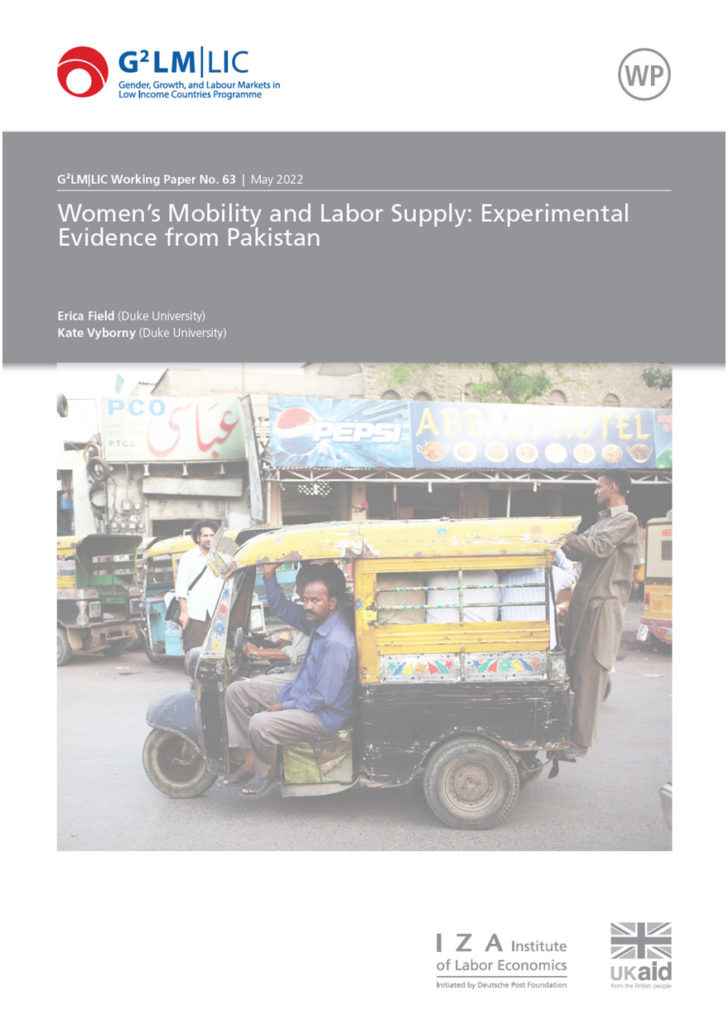
At a relatively high level of education, women in South Asian cities are less likely to participate in the labor market. However, survey data suggest that many women might be “latent job seekers.” In this paper, researchers study potential barriers women might face while entering the urban labor force. For example, in cities with conservative norms or high crime, female workers face greater restrictions on their physical mobility due to pervasive stigma, harassment, or violence on public transport or in the public space, which in turn enable them to become economically inactive. To fill this gap, the authors enrolled a representative sample of male and female residents of Lahore, Pakistan, including employed, unemployed, and economically inactive, through their job matching platform by conducting a transport randomized controlled trial. While one quarter of women in Pakistan’s Demographic and Health Surveys work outside the home, another quarter say they are willing to work—suggesting that a large number of women may be “latent jobseekers” who are at the margin of participation if specific barriers can be addressed. This group receive more emphasis in the study to particularly understand gender differences since a high fraction of the female workers are latent workers in Pakistan.
They find that reducing physical mobility constraints has a large impact on women’s job search and does not impact men. Women’s response is driven by a women-only transport treatment arm, suggesting that safety and social acceptability, rather than simply cost, are key constraints for women’s mobility. Furthermore, women who are inactive at baseline—neither working nor searching—respond to a women-only safe transport treatment by increasing their job search, but do not respond to mixed-gender transport, suggesting that this constraint may play a role in women’s employment decisions on the extensive margin. The pattern of this result is consistent with safety and social norms being key constraints in female labor force participation. Read the detailed Working Paper here.